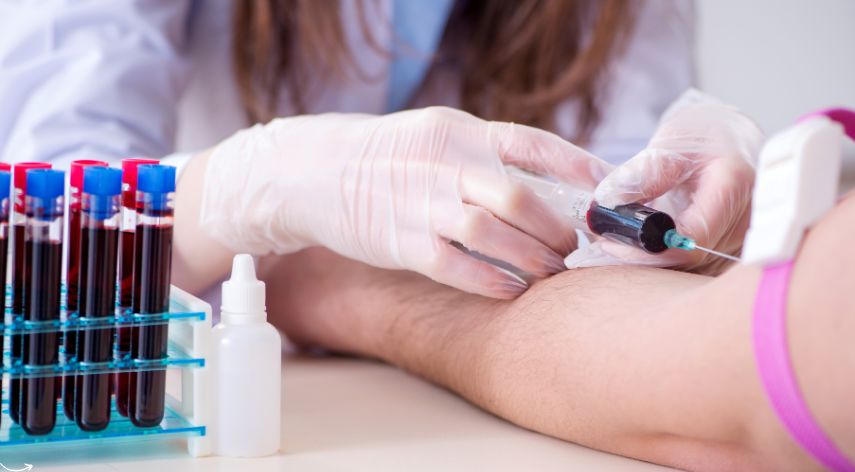What to Do After a Positive STI Test Result: A step by step Guide

In the UK, sexually transmitted infections (STIs) are a common concern. Receiving a positive STI test result can be a distressing experience, but it’s important to remember that it’s manageable with the right steps. By taking prompt action, you can protect your health and prevent the spread of infection.
It’s crucial to understand that STIs are often asymptomatic, meaning they may not cause noticeable symptoms. This is why regular testing is essential for everyone who is sexually active. Early detection and treatment can significantly reduce the risk of complications and transmission to others.
Table of Contents
ToggleConfirm the Results
If you’ve received a positive STI test result, it’s important to confirm the diagnosis. Some tests may require a follow-up appointment to ensure accuracy. Your healthcare provider will advise you on the appropriate course of action based on the specific STI and your individual circumstances.
Consult with Your Healthcare Provider
Once you’ve confirmed the diagnosis, it’s crucial to speak to a healthcare professional about the specific STI you have. They can provide you with information about the infection, its symptoms, and available treatment options. In the UK, you can visit a General Practitioner (GP) or a specialist sexual health clinic. These clinics offer confidential services and experienced healthcare professionals who can provide tailored advice and support.
Start Treatment Immediately
Many STIs are treatable and curable, while others are manageable. Prompt treatment can prevent complications and reduce the risk of transmission to others. Your healthcare provider will prescribe medication or recommend other treatments based on the specific STI. It’s essential to follow the treatment plan carefully and complete the full course of medication, even if symptoms disappear.
Notify Your Partners
If you’ve been diagnosed with an STI, it’s important to notify your recent sexual partners. This includes anyone you’ve had sexual contact with in the past few months. While this can be a difficult conversation, it’s crucial to prevent the spread of infection. The NHS provides a partner notification service that can help you discreetly inform your partners.
Avoid Sexual Contact Until Treatment Is Complete
While undergoing treatment for an STI, it’s important to abstain from sexual activity to prevent further transmission. The length of time you should avoid sex will depend on the specific STI and your treatment plan. Your healthcare provider can give you specific guidance on when it’s safe to resume sexual activity.
Follow-Up Testing
After completing treatment for an STI, it’s crucial to undergo follow-up testing to ensure that the infection has been eradicated or is under control. This is especially important for STIs that can persist in the body even after treatment, such as herpes and HIV. Regular testing can also help to detect any new infections or monitor the progression of chronic STIs.
The specific timeline for follow-up testing will vary depending on the type of STI and the individual’s treatment response. Your healthcare provider will advise you on the appropriate frequency and duration of testing. In general, you may be recommended to have follow-up tests at regular intervals, such as every three months or six months, for a certain period of time.
It’s important to attend all scheduled follow-up appointments and complete the recommended testing. This will help to ensure that you remain healthy and prevent the spread of the infection to others. If you experience any new symptoms or have concerns about your sexual health, don’t hesitate to contact your healthcare provider for advice.
Prioritise Safer Sex Practices in the Future
To reduce your risk of future STIs, it’s important to practice safer sex. This includes using condoms consistently and correctly, getting regular STI tests, and limiting the number of sexual partners. Additionally, some STIs, such as HPV, can be prevented through vaccination.
Mental and Emotional Well-being
Receiving a positive STI test result can have a significant impact on your mental and emotional well-being. It’s important to remember that you’re not alone, and there are resources available to help you cope. Talking to a healthcare professional, counselor, or support group can provide emotional support and guidance. Additionally, self-care practices, such as exercise, relaxation techniques, and spending time with loved ones, can help you manage stress and maintain your overall well-being.
Know Your Rights and Resources in the UK
In the UK, you have the right to access free and confidential sexual health services. The NHS provides a range of services, including STI testing, treatment, and advice. Additionally, there are many other organizations and helplines available to offer support and information.
Conclusion
Receiving a positive STI test result can be a challenging experience, but it’s important to remember that it’s manageable with the right steps. By seeking medical advice, starting treatment promptly, and practicing safer sex, you can protect your health and prevent the spread of infection. It’s also crucial to take care of your mental and emotional well-being and seek support if needed. Remember, you’re not alone, and there are resources available to help you through this difficult time.
If you have any concerns about your sexual health or have received a positive STI test result, please don’t hesitate to contact your GP or visit our sexual health clinic. They can provide you with the information and support you need.
Lareal Young is a legal professional committed to making the law more accessible to the public. With deep knowledge of legislation and legal systems, she provides clear, insightful commentary on legal developments and public rights, helping individuals understand and navigate the complexities of everyday legal matters.
Recommended For You
Spread the loveIf you’ve recently had a blood test and noticed ‘eGFR’ on your report, here’s everything you need to
Spread the loveGastroshiza is a rare but serious birth defect that affects the abdominal wall of a developing fetus. While
Spread the loveHealth screening is a vital part of preventive healthcare which plays a crucial role in the maintenance of
Browse by Category
- Travel
- Technology & Gadgets
- Sports & Games
- Software
- Shopping
- Reviews
- Real Estate
- Numerology
- News
- Make Money
- Lifestyle
- Law
- Home Improvement
- Health
- Gardening
- Games
- Finance
- Entertainment
- Education
- Digital Marketing
- Diet and Fitness
- Dating
- Construction
- Celebrity
- Career and Jobs
- Business
- blog
- Angel Number





